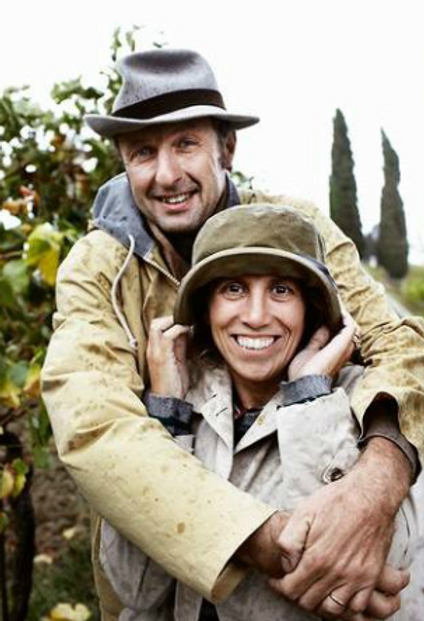Pacina
VISIT THIS PRODUCER'S WEBSITE
LOCATE ON GOOGLE MAPS
VISIT IMPORTER'S WEBSITE
Country of Origin: Italy
Location: Chianti Colli Senesi, Tuscany
People: Giovanna Tiezzi & Stefano Borsa, Owners & Winemakers
Viticulture: Practicing Organic
Items
Media Links:
Uncorked in Italy: Pacina: Stewards of a Generous Gift from Nature in Tuscany
Certain wines feel timeless, elemental. They cut through the ephemera of technology, fashion, ideology, and marketing, and hit the taster right in the gut. Such experiences are precious, and increasingly rare, so it is with immense gratitude that Rosenthal introduces their newest partner in Tuscany: Pācina. Giovanna and Stefano’s wines are neither tethered to rigid traditionalism nor adrift in nebulous experimentation; they feel like a natural fact—as if they could be no other way than how they are. Threading that wisp of a needle requires a near-subliminal rightness of engagement with one’s land, tradition, methodology, and vision, and Giovanna and Stefano pull it off seemingly effortlessly.
It also requires a great deal of practice, and indeed Giovanna and Stefano, today with the full-time help of their children Maria and Carlo, have been at it for quite some time. Giovanna’s great-grandfather purchased the property over a century ago, and she and Stefano have helmed operations for 30 years now, fully embracing and refining the rigorously holistic sustainability Giovanna’s mother Lucia and father Enzo—a founding member of the Legambiente (“League for the Environment”) association, Italy’s foremost environmentalist group—began implementing in the 1970s. Situated on the border of Castelnuovo Berardenga in the Chianto Classico zone and the Colli Senesi, the property traces its origins to the 10th century, when it was a monastery devoted to viticulture and agriculture, and the name itself nods to an even more ancient culture: the Etruscans, that mysterious civilization that bridged the Iron Age and the Roman era, covering a vast swath of central Italy at its apex of influence. Pācina was the Etruscan god of wine; the Romans who followed them altered the name and called him Bacchus.
In true polycultural fashion, only 11 of the estate’s 65 hectares are planted to vines; the rest comprise olive trees, various crops such as chickpeas and spelt, uncultivated fields, and unadulterated woodlands. Vines are tended without any chemical interference, and Giovanna and Stefano use exclusively massal selection for new plantings, which are done vine by vine rather than in large swaths. There is, of course, plenty of Sangiovese; there is also Ciliegiolo, Canaiolo, Trebbiano, Malvasia di Chianti, and a touch of Syrah. Vegetation is allowed to freely flourish everywhere on the property.
Nothing that takes place in the labyrinthine subterranean cellar, itself a relic of the original monastery, is done by formula. Giovanna and Stefano allow their fermentations to proceed naturally and at their own pace, with no temperature stabilization; sulfur—the only potential addition to the wines—is administered as needed and often not at all; and bottling takes place according to the evolution of each individual wine rather than to the time-sensitive pressures of the marketplace. (If such an approach reminds you of our friend Nicoletta Bocca of San Fereolo, that is no accident, as Giovanna and Stefano helped Nicoletta find her footing during her earliest forays; and, in another uncanny RWM connection, it was Giovanna’s mother Lucia who designed the iconic label for Le Boncie’s “Le Trame”!) The barrels, placed irregularly in the cellar’s narrow and uneven passageways, are very old, as are the weathered but well-maintained cement tanks in which all fermentations take place.
Pācina’s wines pulse with lifeforce, a combination of textural seamlessness, elegance of fruit, depth of concentration, and soaring energy. They are remarkably digestible and delicious, but profoundly rather than gulpably so. Tasting wines such as Pācina’s, one wonders why Tuscany ever caught the modern bug in the first place. It is no exaggeration to assert that Pācina embodies much of what is meaningful, beautiful, and eternal in the world of wine, and we are extremely excited to partner with Rosenthal in welcoming them into our family of growers.

